Navprakriti: Driving Sustainable Battery Recycling in India
 >
>
In the pursuit of a more sustainable and environmentally conscious world, the battery recycling industry is undergoing a significant transformation. Navprakriti is at the forefront of this change, playing a pivotal role in India’s clean energy journey. With rapid technological advancement and increased adoption of electric vehicles, battery consumption is soaring. The global battery recycling market, valued at USD 26.9 billion in 2023, is projected to reach USD 54.3 billion by 2030, growing at a steady CAGR of 10.5%.
Navprakriti’s Pathways to a Greener Future
To ensure a sustainable future, we focus on ten key pathways:
1. Government Incentives Navprakriti advocates for financial rewards and tax benefits for individuals and organizations involved in battery recycling. While India has implemented Production-Linked Incentive (PLI) schemes for advanced cell manufacturing, battery recycling needs similar support. Navprakriti supports policy frameworks recommended by NITI Aayog in the 2023 report Mine to Market: Critical Minerals Supply Chain, which outlines strategies for building resilient battery supply chains.
2. Regulations, Policies, and Standards India’s Battery Waste Management Rules (BWMR) 2022 promote Extended Producer Responsibility (EPR). Navprakriti aligns with these mandates, encouraging all stakeholders to reclaim and recycle end-of-life batteries. While AIS-156 battery safety standards exist, Navprakriti supports additional global standardization and the creation of a centralized government department to streamline policies across ministries.
3. Developing a Skilled Green Workforce Navprakriti believes that training programs are essential to build a competent workforce for Lithium-ion battery recycling. With support from the Ministry of Skill Development and Entrepreneurship, Navprakriti promotes initiatives that equip workers with relevant technological expertise, aligning with the ILO’s estimate that 24 million green jobs could be created globally by 2030.
4. Research and Development in Advanced Battery Recycling We are committed to advancing recycling technologies that increase yield, extend battery life, and reduce environmental impact. Through collaborations with academic institutions and innovation hubs like DST’s Manthan, Navprakriti supports the development of sustainable battery solutions tailored to India’s resource availability.
5. Formalizing Used Battery Collection. We emphasize the importance of efficient battery collection systems. By collaborating with retail outlets, electronics stores, and community centers, Navprakriti ensures accessible collection points. Additionally, the company integrates informal waste collectors into formal recycling operations through identification and regional center linkages.
6. Eco-Design Mandates Navprakriti advocates for the creation of recyclable and standardized battery designs. Inspired by the EU’s 2023 battery guidelines, we push for manufacturer collaboration to create batteries that are easier to dismantle and recycle, promoting sustainability from the design stage.
7. Battery Asset Pricing and Commodity Trading. To manage price volatility and supply chain challenges, Navprakriti has introduced the eco-nav platform. This tool provides real-time pricing data on critical battery metals and Lithium-ion scrap, enabling stakeholders to make informed decisions and stabilize market dynamics.
8. Responsible Disposal of Hazardous Materials We support the robust implementation of India’s Hazardous Waste Management Rules. By ensuring safe storage, processing, and disposal, Navprakriti enhances compliance and environmental safety. The company also calls for standardized regulations for storing and transporting repurposed batteries.
9. Global Collaboration Initiatives Navprakriti encourages international cooperation to adopt global best practices. As a proponent of innovations like the Battery Passport, Navprakriti seeks alignment with standards from organizations such as BIS, IEC, and UL, ensuring transparency and traceability throughout the battery lifecycle.
10. Cross-Industry Collaboration for Circular Economy Navprakriti fosters partnerships across sectors to build a closed-loop energy transition model. Collaborating with plastic recyclers and e-waste firms, Navprakriti promotes the recycling of non-battery components, amplifying economic and environmental benefits.
Navprakriti’s Commitment to Repurposing and Recycling
Navprakriti prioritizes battery repurposing over recycling whenever possible. Repurposed batteries reduce CO2 emissions by 90% and consume no water, compared to conventional battery metal mining. In contrast, even Navprakriti’s recycling methods use 100 times less water than traditional mining.
According to Allied Market Research, the global EV battery recycling market could grow from $139 million in 2017 to $2.27 billion by 2025 (₹11,500 crores to ₹1,88,000 crores). Navprakriti’s innovative methods align with this growth, ensuring India remains at the forefront of sustainable battery management.
Conclusion
Through awareness, innovation, and a commitment to responsible recycling, Navprakriti is accelerating India’s shift to a cleaner future. By leading the way in Lithium-ion battery recycling and repurposing, Navprakriti ensures a sustainable tomorrow, where economic development and environmental protection go hand in hand.

.png)









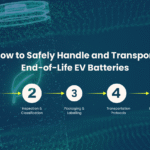

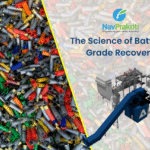
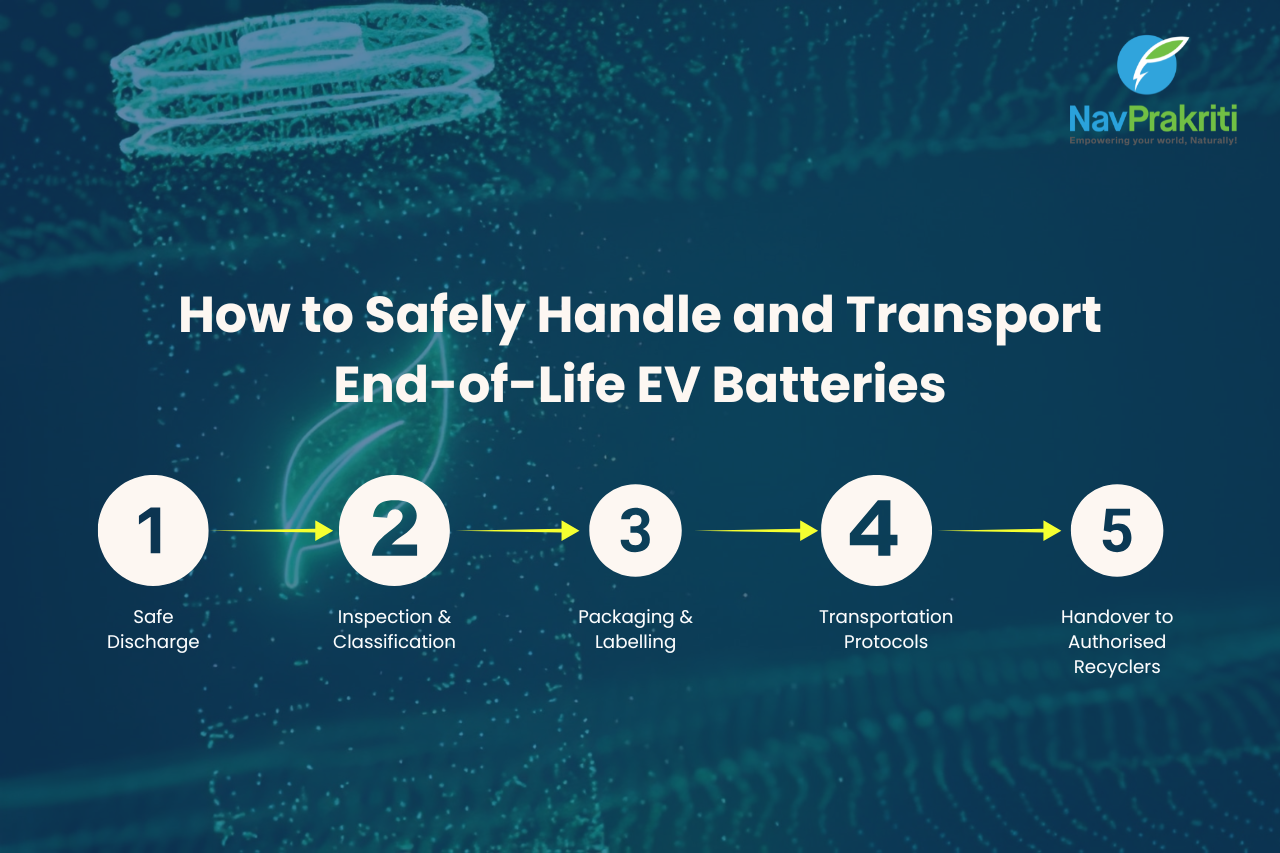
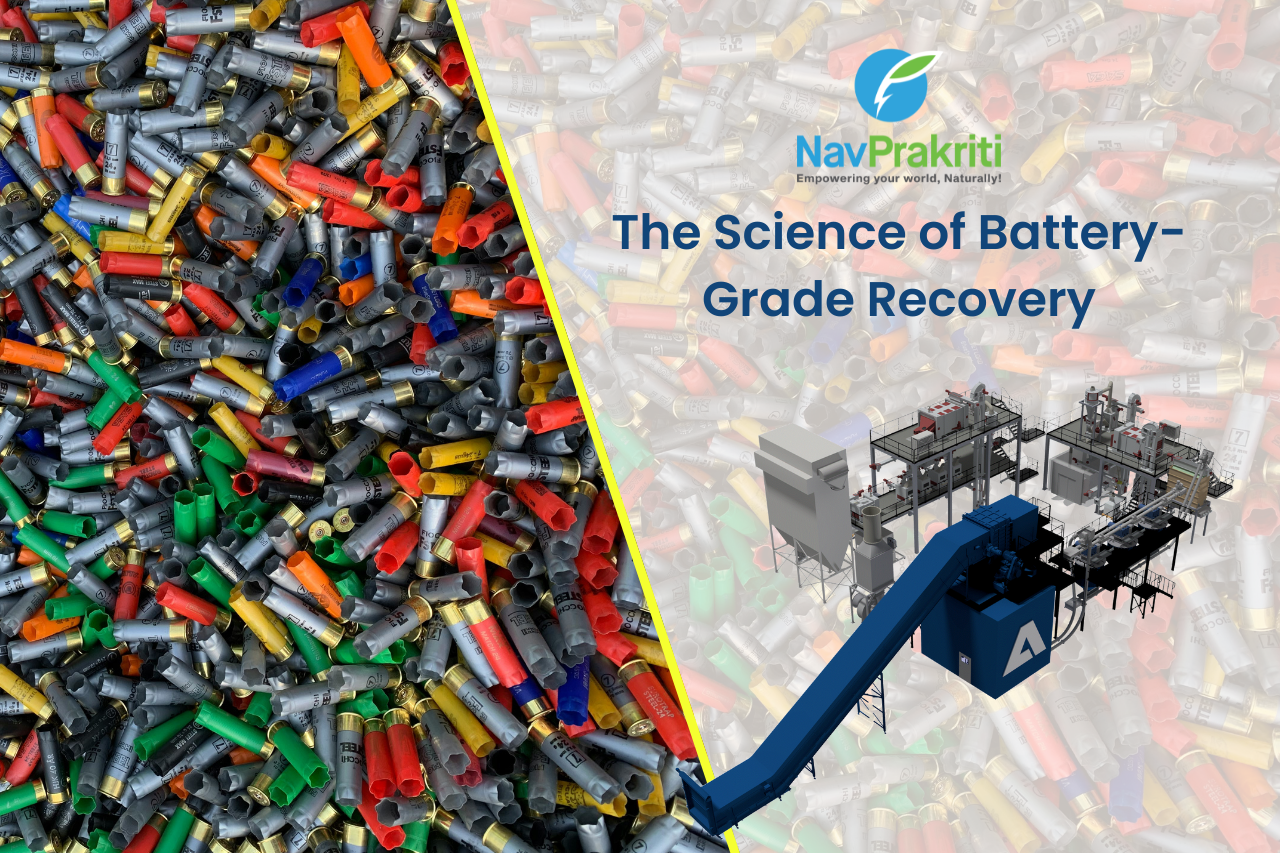

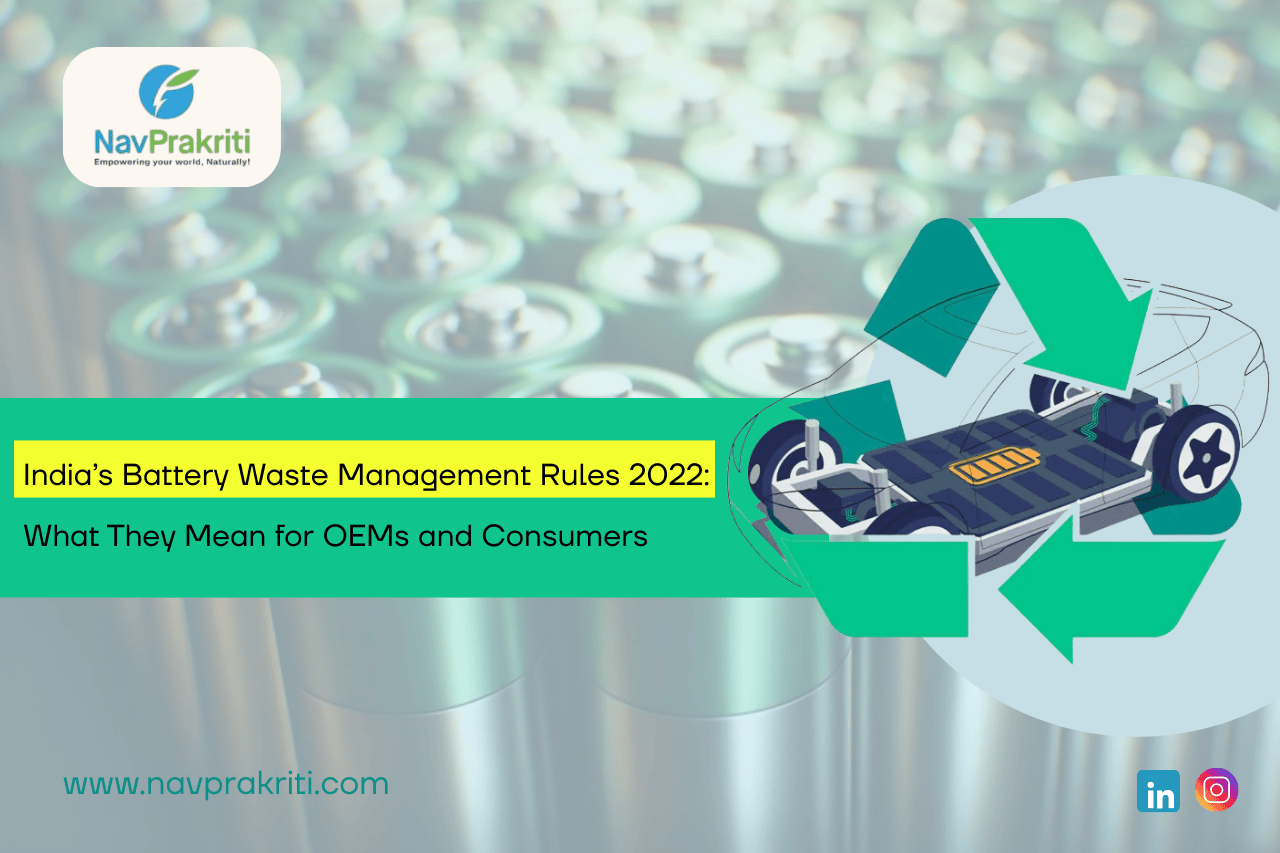


Leave a Reply